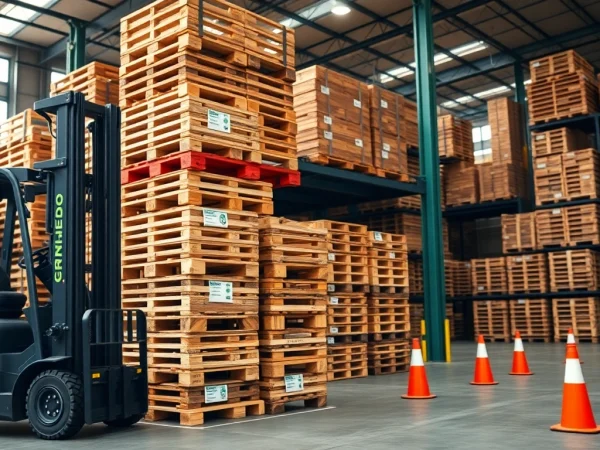Enhancing Workplace Safety with Expert Industrial Hygiene Services
Understanding Industrial Hygiene Services
In today’s fast-paced industrial environment, the significance of Industrial Hygiene Services cannot be overstated. These services are pivotal in ensuring that workplaces are not only compliant with safety regulations but also conducive to employee health and well-being. This comprehensive look into industrial hygiene will explore its definition, importance, and the core components that make it essential across various sectors.
Definition and Importance of Industrial Hygiene
Industrial hygiene is defined as the science of anticipating, recognizing, evaluating, and controlling hazards in the workplace that could adversely affect worker health. Its importance lies in the proactive approach it embraces towards workplace safety. By identifying potential health risks before they manifest, organizations can mitigate hazards, reduce occupational illnesses, and promote overall workplace safety.
The sector of industrial hygiene is critical not only for compliance with governmental regulations but also for fostering a positive work environment that boosts productivity. With rising awareness about occupational health, the demand for expert industrial hygiene services is on the rise, making it essential for businesses to invest in these services.
Core Components of Industrial Hygiene Services
Industrial hygiene services encompass various core components designed to protect and promote worker health. These include:
- Exposure Assessment: Evaluating the level of exposure to hazardous substances, which involves measuring contaminants in the air, on surfaces, or within materials.
- Risk Prevention: Identifying effective control measures that can eliminate or reduce exposure risks.
- Monitoring and Compliance: Ongoing assessments to ensure workplace practices adhere to health regulations and standards.
- Training and Education: Equipping employees and management with knowledge about potential hazards and the importance of safety practices.
- Emergency Preparedness: Developing plans to address potential health crises or incidents that may arise in the workplace.
Tailored Solutions for Different Industries
The approach to industrial hygiene must be customized, as different industries face unique challenges. For instance:
- Manufacturing: This sector often deals with exposure to chemicals, noise, and physical stressors, necessitating comprehensive monitoring and control strategies.
- Construction: Given the variability of job sites, services must focus on safety from dust, air quality, and potential chemical hazards.
- Healthcare: Here, the focus shifts to biological hazards, ensuring that areas are safe from infectious agents and cross-contamination.
- Agriculture: Workers may face unique exposures such as pesticides and ergonomic risks, requiring specialized assessments and interventions.
Key Benefits of Industrial Hygiene Services
Investing in industrial hygiene services yields numerous benefits that extend beyond mere compliance with regulations. These include:
Reducing Workplace Hazards Effectively
One of the primary goals of industrial hygiene is to reduce hazards in the workplace effectively. By using systematic approaches to identify and control potential risks, businesses can minimize accidents and incidents. This not only curtails medical costs related to occupational injuries but also enhances employee morale and productivity as workers feel safer in their environments.
Improving Employee Health and Well-Being
With comprehensive industrial hygiene practices in place, organizations actively contribute to the well-being of their employees. Healthier workers are less likely to take sick days, which can significantly boost productivity and morale. Additionally, a focus on health can foster employee loyalty and retention, leading to lower turnover rates.
Regulatory Compliance and Risk Management
Regulatory compliance is a significant aspect of industrial hygiene. Organizations that implement rigorous hygiene practices stay ahead of regulatory requirements, mitigating the risks of fines and sanctions. Furthermore, effective industrial hygiene practices allow for better risk management strategies, letting businesses foresee and address potential hazards proactively.
Common Services Offered by Industrial Hygiene Professionals
There is a wide variety of services offered by industrial hygiene professionals that are crucial in maintaining workplace safety and health:
Air Quality Assessments and Monitoring
One of the most crucial services, air quality assessments involve sampling and analysis of indoor air to identify pollutants and ensure compliance with occupational standards. Continued monitoring of air quality helps to maintain a safe work environment, particularly in industries involving chemicals or significant particulate matter.
Noise Exposure Evaluations
Noisy environments can lead to hearing loss and other health issues among workers. Professional noise evaluations focus on measuring sound levels in the workplace and determining whether they exceed occupational exposure limits. Based on these evaluations, organizations can implement noise control programs to protect employee health.
Hazardous Material Sampling
Sampling and analysis of hazardous materials are crucial components of industrial hygiene. Specialists conduct thorough assessments of materials for the presence of hazardous substances, ensuring that workers are not exposed to dangerous chemicals or toxins. This proactive measure not only safeguards health but also ensures compliance with local and federal regulations.
Choosing the Right Industrial Hygiene Services Provider
Selecting the right provider of industrial hygiene services is essential for ensuring optimal workplace safety. Organizations should consider several factors when making their choice:
Credentials and Expertise to Look For
When evaluating industrial hygiene service providers, it’s essential to confirm their credentials. Look for certifications such as Certified Industrial Hygienist (CIH), which indicates a high level of expertise and commitment to the field. Additionally, consider the provider’s experience in relevant industries, as this will influence their ability to address specific challenges.
Evaluating Client Testimonials and Case Studies
Client testimonials and case studies provide insights into a provider’s effectiveness and customer service. Prospective clients should seek references from current or former customers to evaluate the provider’s capacity to meet expectations. Case studies showcasing successful projects can also highlight the provider’s skills and versatility in handling various industrial hygiene challenges.
Cost Considerations and Service Packages
While cost should not be the sole determinant in choosing a service provider, it is an essential factor. Clients should request detailed proposals outlining services and costs, comparing them against budgetary constraints. Additionally, evaluating service packages offered by the provider can reveal opportunities for tailored solutions that best fit the organization’s needs.
Future Trends in Industrial Hygiene Services
The future of industrial hygiene services is being shaped by technological advancements and evolving workplace dynamics. Here are several trends to watch:
Technology Integration in Industrial Hygiene
The integration of technology into industrial hygiene practices is gaining momentum. Cutting-edge solutions such as wearable air quality monitors and advanced data analytics are revolutionizing how organizations assess and manage workplace environments. These technologies allow for real-time monitoring, enabling organizations to respond immediately to hazardous conditions and maintain optimal safety levels.
Shifting Focus Towards Preventive Healthcare
Emerging trends show a significant shift towards preventive healthcare in industrial hygiene. Rather than solely focusing on reactive measures, organizations are now emphasizing proactive health measures to foster a culture of safety. This includes ongoing health education, stress management programs, and regular wellness assessments, all aimed at preventing health issues before they arise.
Growing Importance of Remote Monitoring Solutions
With the rise of remote work and the evolving nature of job sites, remote monitoring solutions are becoming pivotal in industrial hygiene. Organizations are investing in technology that allows for consistent monitoring of environmental conditions, ensuring that worker safety is upheld even when physical assessments cannot be performed. This approach not only enhances safety but also increases operational efficiency by allowing for remote data access and analysis.








